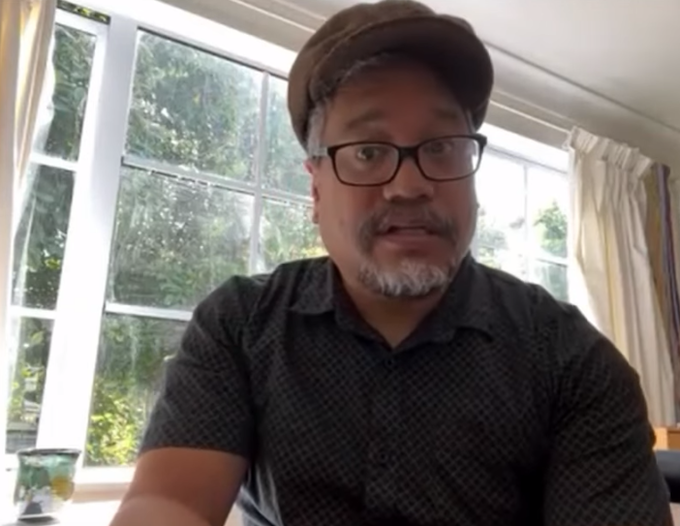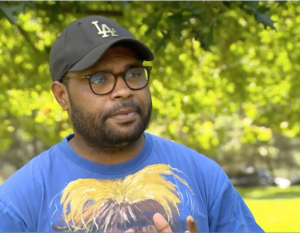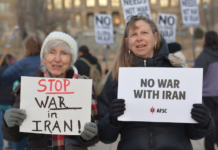
By Matthew Scott of Newsroom
Time is running out for a group of West Papuan students in New Zealand whose scholarships were cut — out of the blue — by the Indonesian government
The sudden removal of government funding for the Papuan students has left many of them in financial dire straits on visas that are running out.
Forty two students learned of the termination of their scholarships at the beginning of this year. With deadlines approaching they have appealed to both the Indonesian government and MPs in New Zealand to see if they can fix their dashed hopes of a completed education.
- READ MORE: Ukraine example cited in call to extend visas for abandoned Papuan students
- Papuan students caught by Indonesian grants cutback plead for NZ help
- West Papuan students in dire straits in NZ after Indonesia cuts funding
- West Papuan students fight to keep scholarships to study in Aotearoa
- Overcoming trauma, Papuan students in NZ now face new challenge
- Papuan students form global umbrella body, reaffirm campaign for education rights
- Papuan students succeed in NZ – ‘the golden generation from Papua’
- Mahasiswa Papua di luar negeri deklarasikan IAPSO – Tabloid Jubi [Bahasa Indonesian]
- Other reports on the Papuan education controversy
- WATCH: Te Ao Māori News video
Green Party MPs Ricardo Menendez March, Golriz Ghahraman and Teanau Tuiono penned a letter to Minister of Foreign Affairs Nanaia Mahuta requesting government to support for the students before they are deported.
They are calling for a scholarship fund to support the impacted students, a residency pathway for West Papuan students whose welfare has been affected, and an assurance that the students will have access to safe housing in affordable accommodation.
But according to Menendez March, the most urgent issue is the students’ visas — he is calling on the government to extend them due to special circumstances, such as those for Ukrainian nationals.
“What the situation in Ukraine taught us is that when there is political will, our immigration system can move relatively fast to provide solutions for people who are facing uncertainty,” he said. “The special visa that was created to support Ukrainian families show we could have an intervention to support these students.”
Quick move for Ukraine
Immigration moved quickly to ensure Ukrainians with family in New Zealand had an easier avenue to a two-year work visa as a part of the humanitarian support developed in response to the refugee crisis.
“Immigration Minister Kris Faafoi said last week when the details were unveiled: ‘This is the largest special visa category we have established in decades to support an international humanitarian effort and, alongside the additional $4 million in humanitarian funding also announced today, it adds to a number of measures we’ve already implemented to respond to the worsening situation in Ukraine.'”

The Ukraine policy is expected to benefit around 4000 people, with Immigration streamlining processes to make sure they are supported sooner rather than later.
With just 42 West Papuan students now in this visa crisis, Menendez March said it would be easy enough for the Government to create a special category.
And more than that, it would be an opportunity for New Zealand to stand up for a Pacific neighbour.
“As a Pacific nation we do have a responsibility to support West Papuans,” he said. “I think this is a small but really tangible way that we could supporting the West Papuan community.”
For some of the students, returning home isn’t just a matter of giving up on whatever ambitions lay past graduation day – but also a safety risk.
Openly communicated
“The students have openly communicated in the past some of them may not necessarily face safe living conditions back at home,” Menendez March said, who met with the students last week along with Greens spokesperson for Pacific people Teanau Tuiono to discuss possible solutions.
Tuiono said there were multiple reasons why the New Zealand government should step in and offer support to the students.
“First, there’s the consistency thing — if we’re going to do this for people from the Ukraine, why not for West Papuans,” he said. “Also, we are part of the Pacific and we have signed the United Nations Declaration on the Rights of Indigenous Peoples.”
The declaration, first adopted by the UN General Assembly in 2007, establishes a framework of minimum standards for the survival, dignity and well-being of the indigenous peoples of the world.
“West Papuans are indigenous peoples who have been occupied by Indonesia, so there’s that recognition of a responsibility on an international level that we have signed up to,” Tuiono said.
The letter signed by the Green MPs was sent to Mahuta at the beginning of this month, but they say there has been no meaningful response. Meanwhile, some of the students are potentially just a matter of weeks away from deportation.
The decision to rescind the scholarship funds came as a shock to West Papuan students in New Zealand like Laurens Ikinia, who is in the final year of his Master of Communication at AUT. He hopes he will be allowed in the country until his upcoming graduation.
But despite the International Alliance of Papuan Student Associations Overseas calling on the Indonesian government to consult with it to try and resolve the issue, there has been no response.
“It is really heartbreaking for us as the central government of Indonesia and the provincial government have not given any positive responses to us,” Ikinia said. “The government still stick to their decision.”
Matthew Scott is a journalist writing for Newsroom on inequality, MIQ and border issues. Republished with permission.












































